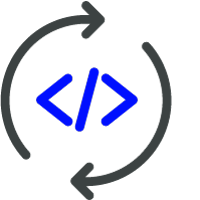The European Union introduced the Digital Operational Resilience Act (DORA) in 2023, and it became enforceable in January 2025. Businesses based outside of the EU stand to benefit from becoming DORA compliant because doing so increases operational resilience and stakeholder trust. In turn, this makes it easier to maintain close relationships with clients and partners on the continent.
DORA is designed to provide a framework for operational resilience to which financial entities must adhere. Specifically, it encourages organisations in this sector to take steps to guarantee service continuity even if they experience disruption to their core information and communication technology (ICT) assets.
The obvious reason behind this is that a major third-party failure can trigger market disruptions and push even the biggest businesses to the brink. Consumers are equally exposed to market instability, so must be protected against the repercussions of IT outages in the finance sector.
Regulators realise that if financial entities' digital services are compromised or derailed, confidence in the entire banking system will suffer. Thus, DORA aims to manage the risk of vendor failure and is particularly relevant at a time when the finance industry is increasingly reliant on innovative niche software providers. Compliance with DORA begins with internal adjustments. However, it also applies to third-party vendors that supply IT services and software to organisations in this industry niche.
Let’s say you run an insurance business. If your operations extend to the EU, compliance with DORA is a necessity. Likewise, any third party you outsource IT services to must also be up to the task of meeting the requirements of this legislation. In an ideal scenario, DORA guarantees that the entire ecosystem is made up of firms hitting the same minimum operational resilience levels.

GUIDE
Learn how Software Escrow supports compliance with Digital Operational Resilience Act (DORA) regulatory requirements.
ICT Third-Party Risk Management
DORA requires firms to have clear oversight of all third-party ICT providers. This means understanding the risks they pose, putting strong contracts in place to protect your business, and regularly monitoring their performance to ensure they meet operational resilience standards.
Digital Operational Resilience Testing
Regular and thorough testing is essential to maintain resilience. Firms must test their ability to recover critical systems and operations, including validating exit and contingency plans, to ensure they can respond effectively and continue business without interruption during disruptions.
ICT Incident Management
Firms must have clear processes in place to identify, respond to, and report ICT-related incidents promptly and effectively. Firms are also expected to analyse incidents after the fact, document lessons learned, and take steps to prevent similar issues from happening in the future.
ICT Risk Management
Managing ICT risks is an ongoing requirement. Firms need a comprehensive framework to identify, assess, and reduce risks across their digital systems and processes. This framework must be updated regularly to keep pace with evolving threats and technologies.
DORA requires financial institutions to maintain critical services during disruptions. Software escrow supports this by providing secure access to source code and technical documentation if a vendor is unable to meet their obligations, helping institutions continue operations with minimal disruption.
DORA places a strong emphasis on assessing and managing third-party risk, particularly where critical services are involved. Software escrow reduces this dependency by ensuring institutions can maintain and support applications even if a vendor fails or experiences operational challenges.
To meet DORA’s requirements for ICT resilience, institutions must be prepared to recover from disruptions. Software escrow helps by securing essential software assets, allowing internal teams or alternative providers to restore and maintain service if a vendor is unavailable.
DORA requires institutions to have clear and tested exit plans for critical third-party services. Software escrow agreements ensure access to the materials needed to transition services to a new provider. Software escrow verification enables firms to test exit plans by verifying that the material deposited into escrow is correct, complete, and can be rebuilt into the working application either in-house or with an alternative vendor.
DORA expects financial institutions to maintain records that demonstrate effective ICT risk management. Software escrow agreements define clear terms for software access and compliance while software escrow verification provides evidence that deposits are complete and deployable, offering a transparent audit trail that meets regulatory expectations.
Join 14,000 customers in 135+ countries.





















Software escrow agreements secure access to software source code, access credentials, and related material, ensuring firms can maintain operations and meet DORA's business continuity requirements. Learn more.

Escrow verification confirms that the deposited material is correct and can be rebuilt into the working application, supporting DORA requirements for tested recovery procedures and documented response plans. Learn more.

Our SaaS Escrow solution, EaaS, provides firms with access and recovery options for cloud-based services, supporting compliance with DORA’s ICT third-party risk, resilience, and exit strategy requirements. Learn more.
Omer Ahmed Khan
Avanza Solutions

Book a call to learn how Software Escrow supports compliance with DORA requirements.